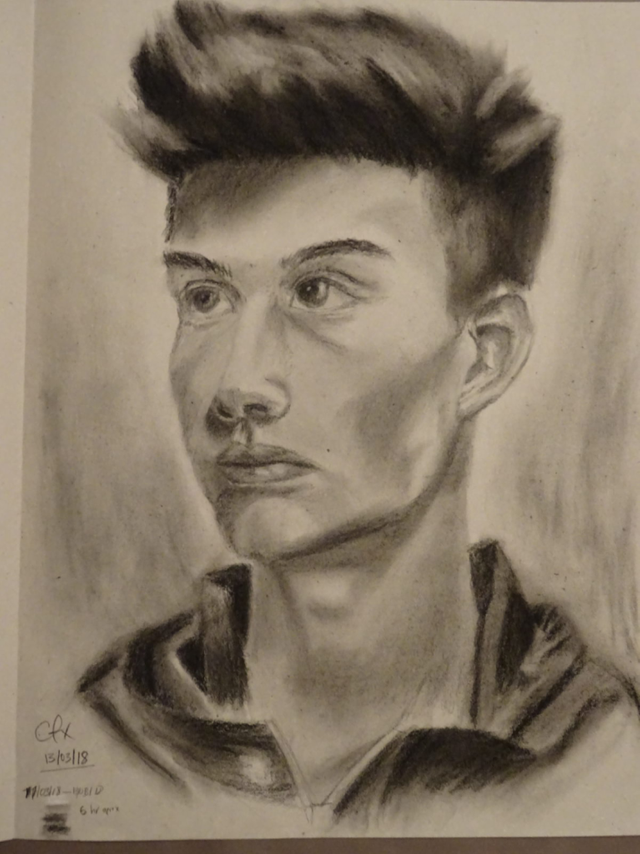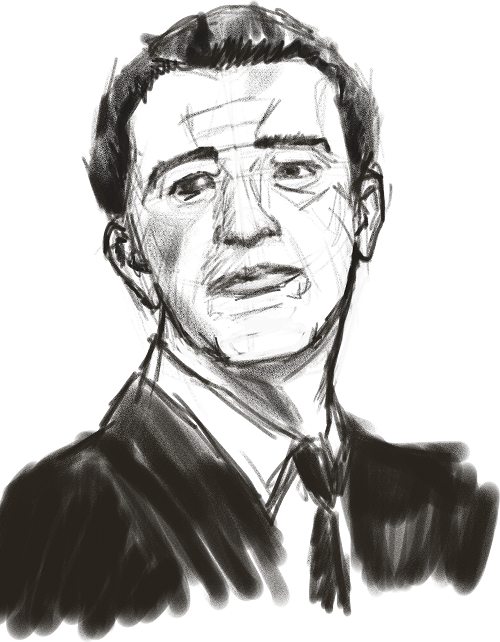Six months of learning art, a story and resources on my path to improve my art skills.

At the end of 2017 I decided to dive in and pick up an old hobby, drawing. This article describes my experiences and mostly my mistakes within a period of six months. I decided to write this in case you're a novice like me and you want to improve your skills.
Index
In case you're not interested in reading the whole story a made this index so you can scroll down right to the books and links I found helpful.
1. The long story 2007 - 2018
2. Defining goals
3. Resources to achieve my goals
4. Results
5.Advise
6.List of resources
1. The long story 2007 - 2018
My first try on picking up drawing again was a year ago, the first trimester of 2017, the idea was “to get better”, this was my first big mistake of this period.
I draw almost daily, portraits, figure and object. I was baffled, what I though I could draw and the results after a month or so where so far away from each other, my bad drawings killed my motivation and I ended quitting. Here are some of my drawing of the period.
.jpg)
.jpg)
.jpg)
It was clear to me that trying was not enough, I started to think about that a lot and I notice that every drawing was pushing my motivation downwards. I mentioned before about the **big mistake of the period**, and it was the lack of a plan, I just draw stuff but it wasn’t clear what I wanted or what I needed to learn, the lack of objectives was something I didn't think about in the beginning. "I'm going to get better is not enough to get better" I also ignored the fact that I often draw without photo references so I was lost in the woods with the eyes shut.
My second try started in the summer, the things went a little better, after looking for some books of anatomy and researching on reddit and reading some post on some art and blogs I decided to buy two books. This time I had a clearer idea of what I wanted and I knew I wanted to learn some basics of drawing to rewire my brain and get rid some of my bad habits.
One of the books I got was The New Drawing on the Right Side of the Brain by Betty Edwards, this book is a basic drawing manual, the chapters include exercises to review the contents of the chapters but they always revolve in one point learning to see, and translating this into paper.
The other book I bought was Figure Drawing - Design and Invention por Michael Hampton, this is and incredible user manual of anatomy for artists, it is full with basic concepts where the author takes you through the process of drawing the human figure. The book is divided in three big parts, Gesture, Structure and an extensive study and examples of anatomy.
The next weeks I dedicated time to read and of course I follow the exercises in the two books, was an interesting process and I learned a lot. And here are the my results after reading the books.
.jpg)
.jpg)
.jpg)
Nevertheless using just books became a tedious task. I was again stuck, I realized that I was copying things from the book and I wasn't really learning, I tried to apply some of the learned material and I was failing. I also noticed that I didn't drop my old bad habits from, like starting to draw without a clear idea or a plan, the lack of references and I never made a personal project. I was frustrated and disappointed but I knew the problem so after a long break I started again.
2. Defining goals
In December I decided to take the whole thing more seriously, I trace a plan of what I wanted to do, this way it was clear what I wanted to learn. I picked three points, after all I read and found in the internet, that were the most important thing for me.
Value
Pencil and charcoal techniques
Anatomy
It took me one week to choose this points, trace a plan for two months, January and February of 2018 and search for material on the internet. Everybody was talking or writing a lot about Value so I though "hey this might be important" so I just picked it without a lot of rationalization. Value is the degree of lightness and darkness in a color. The difference in values is called contrast.
From Wikipedia https://en.wikipedia.org/wiki/Elements_of_art
I choose pencil and charcoal just because I know they are simple and cheap, and one needs just a piece of paper to start drawing.
I wanted to be able to draw portraits so it was obvious to me that I had to learn anatomy.
3. Resources to achieve my goals
Firs great resource was a video from Noah Bradley, who is an American artist that make awesome illustration for Magic (card game). I found this video part of his online course Art Camp https://youtu.be/VgJXyEsakC8 There are three main exercises in this video
- Drawing upside down to reinforce the ability of seeing and not thinking, just like in the Betty Edwards'. This way can we improve our abilities of copying.
- Bargue Drawings. Charles Bargue was an artist and instructor who has a drawing course published in a book, its a fantastic an interesting book, its main focus is copying, Noah recommends to draw with the Bargue plates as references so one can understand a little bit of form, but he also recommends to do still life drawings of casts to avoid the tendency to copy and to enforce the understanding of volume.
- Master Studies. Who knows better than the old masters, this exercise consists in analyzing old paintings of the great artists, who already figured out a lot of anatomy, color, value and more, something probably obvious, the trick described by Noah consist in understand, not copy.
These are some of the exercises I made following the instructions of the video.
.png)
.jpg)
.png)
I was surprised how this simple exercises helped me to loosen my hands and make better strokes with the pencil and to understand a little but more of value.
After two months of practice every night I was confident to make a personal project, I went to unsplash.com searched for a photo reference and I decided to put the work and after two days I finally finished this.

This was an amazing result, you can see that I'm not a great artist, but for the first time I get a glance of what I could reach if I keep going.
4. Results
The next images show the best drawings iI made in a period of two months.
.png)
.png)
.png)
.png)
.png)
5. Advise
In this period I learned some good things that could help you to improve your artistic skills.
- Establish clear objectives from the beginning. If possible easy objectives, like drawing better volumes, value studies or anatomy of one part of the body (don't try to cover the whole anatomy book in one week)
- Set a time goal for this objectives, depending on the complexity of the task and your abilities.
- Avoid to focus just in one objective for too long. One week was enough for me to get sicken from drawing the head or a hand, so I had to switch to something different so when I revisited old objectives I had a fresh mind to work further on them.
I hope this post helps you to achieve your artistic goals, no matter if you just started or you have some basic skills.

6. Resources
Books
Drawing on the Right Side of the Brain https://www.amazon.com/s/ref=nb_sb_ss_i_1_11?url=search-alias%3Dstripbooks&field-keywords=drawing+on+the+right+side+of+the+brain&sprefix=drawing+on+%2Cstripbooks%2C318&crid=1MV2EO0GSRPJW
Figure Drawing - Design and Invention por Michael Hampton https://www.amazon.com/Figure-Drawing-Invention-Michael-Hampton/dp/0615272819/ref=sr_1_1?s=books&ie=UTF8&qid=1532601304&sr=1-1&keywords=figure+drawing+-+design+and+invention+for+michael+hampton
Video
Noah Bradley youtube channel https://www.youtube.com/noahbradley
Bargue plates
I found this post in the forum of conceptart.org you can download some plates and start practicing. http://www.conceptart.org/forums/showthread.php/166289-Charles-Bargue-Drawings-Prints-to-download
Photo references
One of the best places to find free photos is unsplash.com I searched portraits and started to draw.